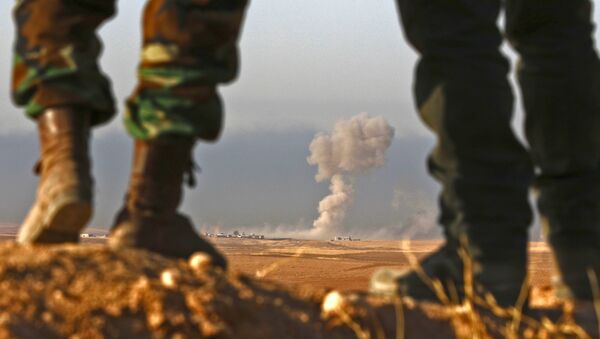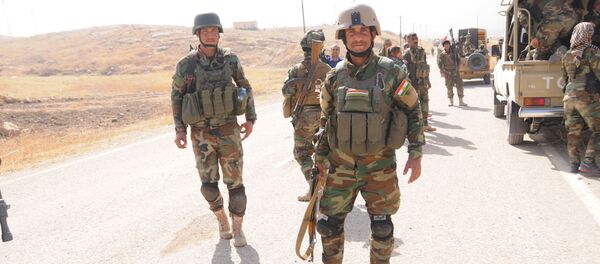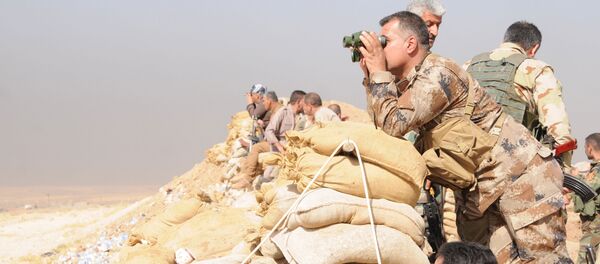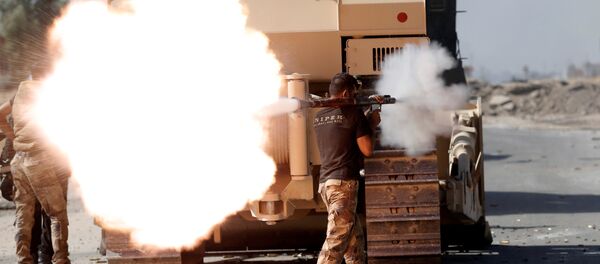Judging by various reports from around Mosul, Daesh is preparing for a desperate defense, and willing to resort to any means necessary to defend itself in Iraq, which could include chemical weapons, suicide bombings and other kinds of explosives, and, worst of all, using the city's civilian population as human shields.
Without thorough planning and a careful approach, the attack on the city will lead to vast civilian casualties, as over 700,000 people are still believed to be in the city, trapped between roughly 3,000-8,000 Daesh fighters and 25,000 coalition troops. Despite Iraqi Prime Minister al-Abadi's statements about establishing safe routes, Daesh is unlikely to let people leave freely.
"[Daesh] has been rigging all of Mosul with explosives, and forcing people to leave their neighborhoods on the outskirts to go deeper into the city," one city resident told the Daily Mail during a clandestine phone call.
"This has been going on for several weeks where we've seen civilians being forcibly detained and their movements being prevented where they can't get out of Mosul. They are being held there against their will," Pentagon spokesman Captain Jeff Davis told reporters, describing the operation to liberate Mosul as "an ugly fight."
The operation "has the potential to be largest man-made disaster for many, many years," warned Bruno Geddo, the UN High Commissioner For Refugees' top official for Iraq.
Many of the fighters currently stationed in Mosul are EU citizens and may choose to return to the European Union, where they would pose a grave security threat, EU officials warn, according to a BBC report.
The current leader of Daesh, Abu Bakr al-Baghdadi, is believed to be in Mosul, along with his senior explosive expert, Fawzi Ali Nouimeh, according to what Hoshiyar Zebari, a senior Kurdish official, described as "solid" intelligence reports. Should the leaders chose to stay in the city, the jihadists' desperate defense would turn the fight for Mosul into something much worse than what has been seen recently in Aleppo.





